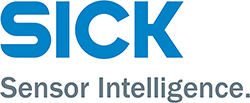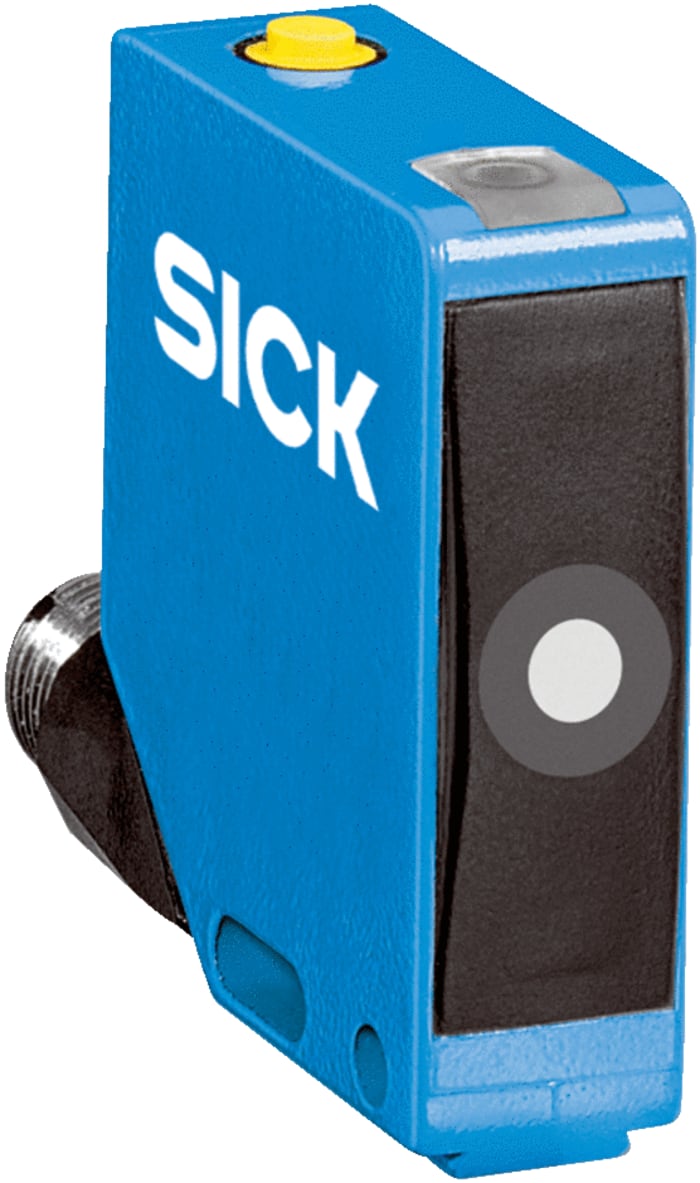Technical Document
Specifications
Brand
SickThread Size
M4
Sensor Technology
Ultrasonic
Body Style
Block
Detection Range
250 mm
Output Function
NO
Digital Switching Output Type
PNP
Connection Type
M12
Supply Voltage
10 → 30 V dc
IP Rating
IP67
Length
50.5mm
Housing Material
Die Cast Zinc
Width
43.5mm
Maximum dc Voltage
30V
Minimum Operating Temperature
-25°C
Maximum Switching Frequency
25Hz
Switching Current
500 mA
Reverse Polarity Protection
Yes
Switching Frequency
25 Hz
Short Circuit Overload Protection
Yes
Depth
15mm
Maximum Operating Temperature
+70°C
Country of Origin
Germany
Product details
UC12 Ultrasonic Proximity Sensor
SICK UC12 ultrasonic sensors provide reliable detection results where optical sensors reach their limits. The UC12 shares the same housing as common photoelectric sensors and is mechanically interchangeable with the industry-standard SICK W12 photoelectric sensor.
UC12 sensors perform measurement and detection in a wide variety of application areas on coloured, shiny, or transparent surfaces, which are particularly challenging for optical sensors. Even adverse ambient conditions such as dust, dirt, or fog hardly affect the measurement result. Whether it is position detection, distance measurement or the detection of solid, powdered or liquid substances. UC12 Ultrasonic sensors from SICK demonstrate their reliability and precision in virtually any application.
Features and Benefits
· Fast commissioning due to single-button teach-in
· Ultrasonic measuring principle with maximum reliability through intelligent analysis of measured values
· Full mechanical compatibility to photoelectric sensors increase application flexibility without machine modification
· Reliable operation in dusty environments
· Distance to object operating mode (e.g. for applications such as height detection)
· Three operating modes: distance to object (DtO), window (Wnd), or object between sensor and background (OBSB)
· Integrated temperature compensation ensures high measurement accuracy
· Complementary switching outputs immediately signal faults
How do ultrasonic proximity sensor work?
Ultrasonic sensors emit a sonic pulse and monitor the signal that is reflected back. Where there is a difference in measurement, such as an object being detected, an output signal is given based on the specification the sensor is configured to. The time required for the pulse to go from the sensor to detect the object and come back again is measured, evaluated and converted into the distance.
P.O.A.
1
RS Components & Controls (I) Ltd
Distribution hub - B-89, Sector 67, Noida, Gautam Budh Nagar, (Uttar Pradesh), 201 301
P.O.A.
Stock information temporarily unavailable.
1
Stock information temporarily unavailable.
Technical Document
Specifications
Brand
SickThread Size
M4
Sensor Technology
Ultrasonic
Body Style
Block
Detection Range
250 mm
Output Function
NO
Digital Switching Output Type
PNP
Connection Type
M12
Supply Voltage
10 → 30 V dc
IP Rating
IP67
Length
50.5mm
Housing Material
Die Cast Zinc
Width
43.5mm
Maximum dc Voltage
30V
Minimum Operating Temperature
-25°C
Maximum Switching Frequency
25Hz
Switching Current
500 mA
Reverse Polarity Protection
Yes
Switching Frequency
25 Hz
Short Circuit Overload Protection
Yes
Depth
15mm
Maximum Operating Temperature
+70°C
Country of Origin
Germany
Product details
UC12 Ultrasonic Proximity Sensor
SICK UC12 ultrasonic sensors provide reliable detection results where optical sensors reach their limits. The UC12 shares the same housing as common photoelectric sensors and is mechanically interchangeable with the industry-standard SICK W12 photoelectric sensor.
UC12 sensors perform measurement and detection in a wide variety of application areas on coloured, shiny, or transparent surfaces, which are particularly challenging for optical sensors. Even adverse ambient conditions such as dust, dirt, or fog hardly affect the measurement result. Whether it is position detection, distance measurement or the detection of solid, powdered or liquid substances. UC12 Ultrasonic sensors from SICK demonstrate their reliability and precision in virtually any application.
Features and Benefits
· Fast commissioning due to single-button teach-in
· Ultrasonic measuring principle with maximum reliability through intelligent analysis of measured values
· Full mechanical compatibility to photoelectric sensors increase application flexibility without machine modification
· Reliable operation in dusty environments
· Distance to object operating mode (e.g. for applications such as height detection)
· Three operating modes: distance to object (DtO), window (Wnd), or object between sensor and background (OBSB)
· Integrated temperature compensation ensures high measurement accuracy
· Complementary switching outputs immediately signal faults
How do ultrasonic proximity sensor work?
Ultrasonic sensors emit a sonic pulse and monitor the signal that is reflected back. Where there is a difference in measurement, such as an object being detected, an output signal is given based on the specification the sensor is configured to. The time required for the pulse to go from the sensor to detect the object and come back again is measured, evaluated and converted into the distance.

